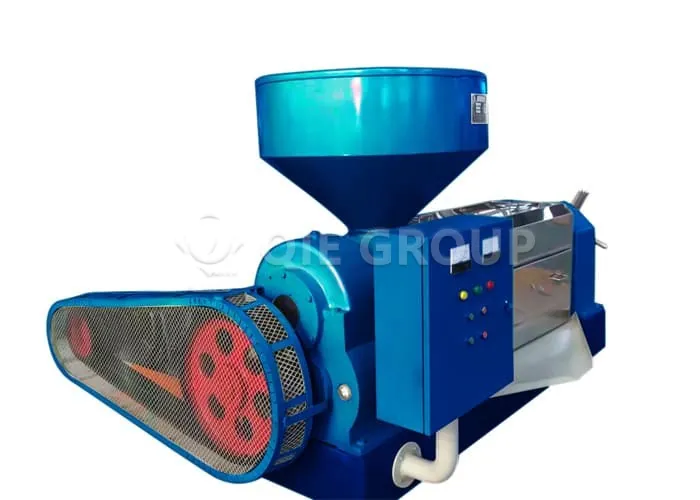
Many oil mill owners have this dilemma: whether it's a screw oil press or hydraulic oil press, soon after purchasing the equipment, they experience a drop in oil yield, increased noise, severe screw wear, and even frequent failures. In fact, this isn't just a quality issue with the equipment itself, but is caused by a combination of multiple factors.
Material selection : It is recommended that core components such as the pressing chamber, screw, and bearings be made of high-strength alloy steel, which should undergo heat treatment and surface quenching to improve wear resistance and fatigue resistance.
Design structure : Reasonable structural design can reduce stress concentration and delay fatigue damage, which is especially important for continuously operating screw oil presses.
Processing precision : High-precision manufacturing can reduce friction and vibration, ensuring a smooth pressing process of the hydraulic oil press.
💡Case comparison: A customer purchased a screw made of ordinary steel and frequently replaced it within a year; while another customer chose a wear-resistant alloy screw, which maintained a good oil yield after three years of use.
Raw material impurity control : Sand, gravel, and metal chips entering the equipment will accelerate the wear of the screw and the pressing chamber. It is recommended to use cleaning equipment before pressing.
Moisture content adjustment : Too high moisture content will reduce the oil yield and may also cause rust and scaling in the press chamber.
Load management : Avoid long-term full-load or overload operation to prevent motor overheating and transmission system damage.
Lubrication management : Add or replace lubricating grease regularly to prevent dry grinding of bearings and gears.
Tightening inspection : Regularly check whether the bolts and couplings are loose to avoid increased vibration of the equipment.
Replacement of wearing parts : Replace the screw, pressing bar, sealing ring, etc. in time according to the frequency of use.
Equipment cleaning : Clean the residue in the pressing chamber after daily shutdown to avoid blockage and corrosion.
Professional training : Different oilseeds (soybeans, sunflower seeds, rapeseed, cotton seeds, etc.) require different pressing parameters. Familiarity with the process can reduce equipment pressure shock.
Fault identification : Promptly detect abnormal noise, vibration or temperature rise to avoid equipment running with problems.
Temperature and humidity control : Keep the environment dry to prevent rust and degradation of lubricant performance.
Power supply stability : Voltage fluctuations may damage motors and electronic control systems.
Installation foundation : A solid foundation can reduce vibration and maintain equipment stability.
Choose a high-quality oil press : give priority to screw or hydraulic oil presses with good reputation, high-quality materials and reasonable structure.
Establish maintenance files : record operating hours, maintenance dates and parts replacement to facilitate tracking of equipment status.
Establish maintenance cycles : lubricate, inspect, and replace wearing parts regularly according to manufacturer's recommendations.
Arrange production reasonably : avoid long-term full-load operation and arrange cooling intervals appropriately.
Technology upgrade : Upgrade screw, filtration system and other components as needed to improve oil output efficiency and durability.
Therefore, the life and stability of the oil press are not determined by a single factor, but the comprehensive result of "equipment quality + correct use + daily maintenance + operating level + environmental conditions".
👉 If you're considering purchasing or upgrading an oil press, please contact us. We'll provide you with professional oil press equipment solutions and maintenance guidance to help your oil mill operate efficiently and stably, extending the life of your equipment.